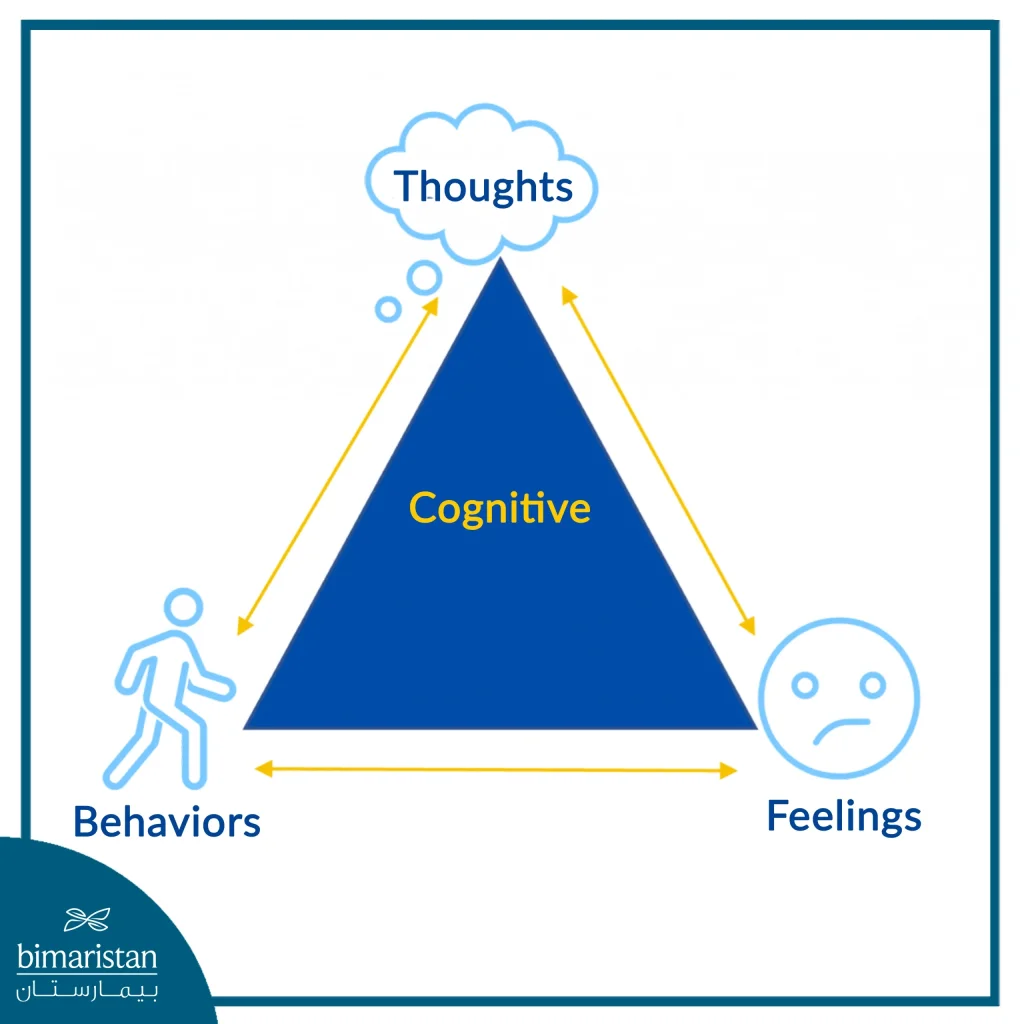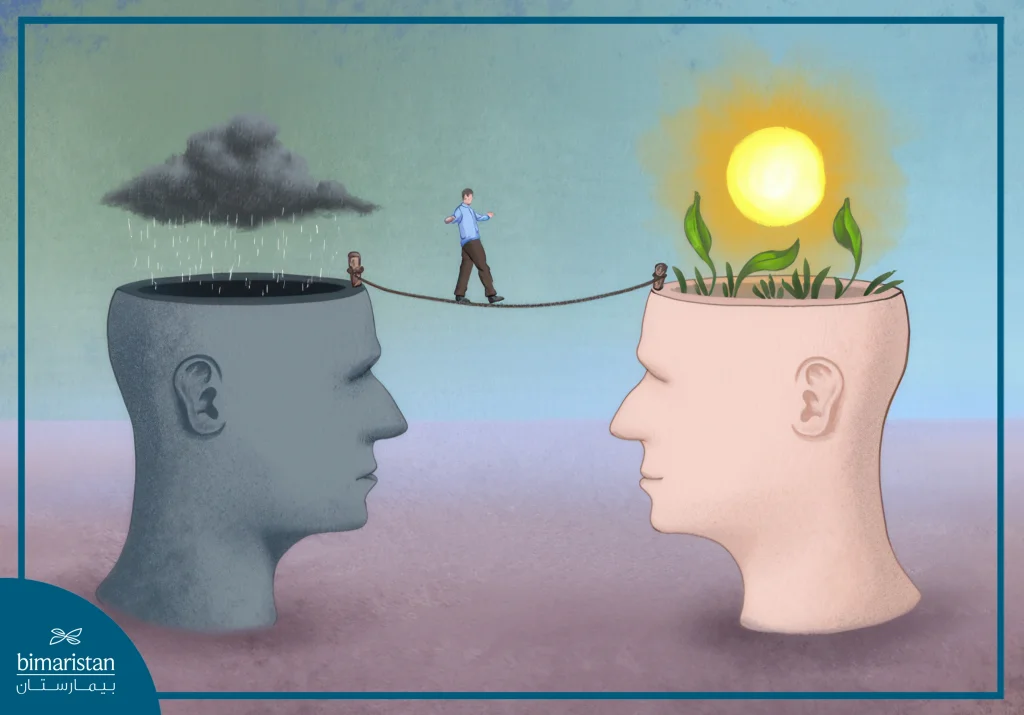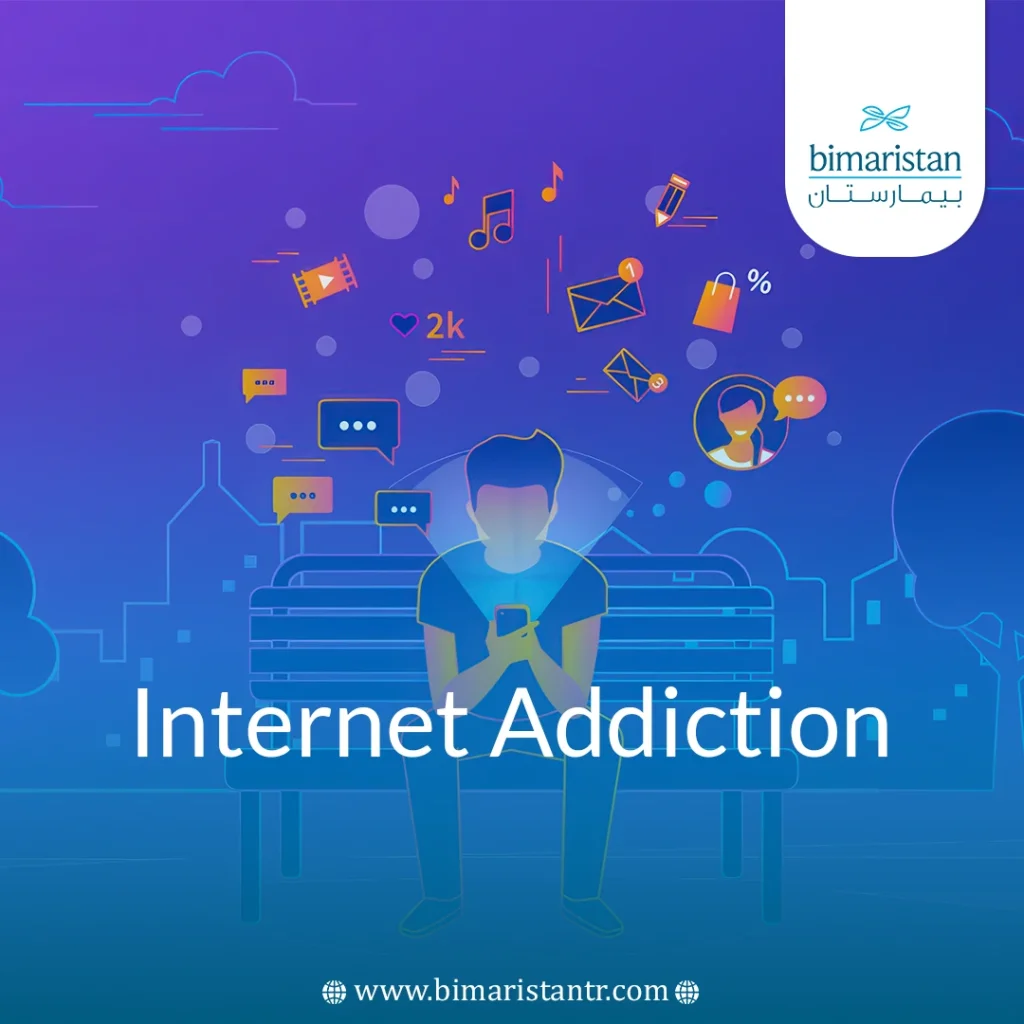In an era where the world fits into the palm of our hands, internet use has shifted from a luxury to an essential part of daily life, but where do we draw the line between regular use and internet addiction?
As dependence on social media, online gaming, and digital entertainment grows, many find themselves trapped in a virtual cycle that disrupts mental well-being, strains social connections, and hinders academic or professional success. In this article, we explore the warning signs of internet addiction, its deep psychological effects, and the proven treatment methods offered in specialized behavioral therapy centers.
What is internet addiction?
Internet addiction is a form of behavioral dependency, marked by excessive and compulsive Internet use that disrupts crucial aspects of daily life, including social interactions, work productivity, and academic success. This condition promotes a persistent fixation on digital activities, leading to compulsive behaviors and noticeable withdrawal symptoms when Internet access is restricted or unavailable.
As time passes, individuals experience an increasing urge to extend their online hours to maintain the same level of satisfaction or escape from stress, reinforcing their psychological and behavioral reliance on digital platforms. Research highlights that young people are particularly susceptible to internet addiction, with excessive screen time among students correlating with a significant drop in academic performance. Beyond mental health implications, the effects extend to physical well-being, as many struggle with sleep deprivation and fatigue due to late-night internet browsing, gaming, or prolonged social media use.
Warning signs of internet addiction
Internet addiction goes beyond excessive screen time. It manifests as compulsive behaviors and emotional struggles that exhibit a loss of control, affecting multiple aspects of life. Here are the key warning signs:
- Escalating online time: Individuals increasingly extend their internet usage to seek comfort or satisfaction, signaling an emerging addiction.
- Financial strain: Excessive spending on digital activities, such as gaming or subscriptions, may lead to neglecting essential expenses like food and bills, highlighting a severe dependency.
- Loss of time awareness: Hours spent online often go unnoticed, reflecting an alarming lack of control over usage patterns.
- Declining academic or work performance: Addicts often prioritize internet use over professional or educational commitments, leading to deteriorating productivity and increasing responsibilities.
- Preoccupation with the internet: Persistent thoughts about online activities interfere with work, studies, and social interactions, indicating an unhealthy fixation.
- Withdrawal symptoms: Anxiety, mood instability, and stress emerge when offline, pushing individuals to reconnect to alleviate discomfort.
- Physical health problems: Prolonged screen exposure leads to issues like eye strain, back pain, and repetitive stress injuries, all linked to excessive internet consumption.
- Avoidance of negative emotions: Many turn to the internet as an escape from guilt, depression, or anxiety, reinforcing psychological dependence.
- Relationship difficulties: Internet addiction disrupts marriages, family bonds, and friendships, as affected individuals struggle to maintain meaningful connections.
- Failed attempts to cut back: Despite efforts to reduce screen time, addicts find themselves unable to break the cycle, demonstrating diminished self-control.
- Sleep deprivation and mood fluctuations: Late-night browsing results in chronic fatigue, irregular sleep patterns, and emotional instability.
- Neglect of responsibilities and personal ties: Critical aspects of daily life, including family, work, and studies, take a backseat to compulsive internet use.
- Social withdrawal: Over time, addicts isolate themselves, distancing themselves from real-world interactions and deepening feelings of loneliness.
The impact of internet addiction on mental health and relationships
Internet addiction goes beyond being just a compulsive behavior. It can trigger psychological and emotional disorders that significantly impact overall well-being:
- Sleep disturbances and inactivity: Excessive screen exposure disrupts natural sleep cycles, weakening mental health and promoting a sedentary lifestyle.
- Anxiety and depression: Prolonged internet use is closely linked to heightened anxiety and depression, as individuals turn to digital spaces to escape negative emotions, unintentionally worsening their condition.
- Low self-worth and negative self-perception: Many internet addicts experience diminished self-esteem, often stemming from unrealistic social media comparisons or guilt over neglected responsibilities.
- Social withdrawal and weakened relationships: Excessive online engagement distances individuals from real-world connections, eroding essential social bonds and emotional support.
- Chronic stress and tension: Overuse leads to continuous psychological strain, particularly when disconnected or confronted with real-life problems that have been avoided.
- Binge eating disorder and body image concerns: Exposure to certain online content can distort self-image, contributing to conditions like anorexia or bulimia.
- Cyberbullying and online harassment: Some platforms expose users to bullying, intensifying mental distress, especially among teenagers and young adults.
- Financial and career repercussions: Uncontrolled internet use can result in neglecting job responsibilities or overspending on digital activities, leading to professional setbacks or financial difficulties.
- Impaired focus and attention: Excessive digital stimulation can weaken concentration and cognitive function, negatively impacting academic and professional productivity.
- Escape from reality: Many rely on the internet as an emotional refuge, preventing them from confronting real-life challenges in a healthy and constructive manner.

How is internet addiction treated?
Addressing internet addiction does not require complete avoidance but focuses on helping individuals develop healthy, controlled internet usage habits. Most treatment programs aim to restore psychological and behavioral stability through a combination of psychotherapy, social support, and, in some cases, medication-based interventions.
Cognitive Behavioral Therapy (CBT)
Cognitive Behavioral Therapy (CBT) is the primary method for treating internet addiction. This therapeutic approach is founded on the idea that thoughts, emotions, and behaviors are deeply connected. It helps individuals:
- Make conscious and informed choices about internet use
- Identify destructive thought patterns and compulsive behaviors
- Develop self-regulation skills and effective coping mechanisms for stress
- Challenge irrational beliefs linked to anxiety or guilt over internet usage
- Studies have consistently demonstrated its effectiveness in reducing compulsive behaviors and improving self-control

Family and Group therapy
Since internet addiction frequently disrupts family dynamics and social connections, involving loved ones and communities in treatment is a crucial step. Family and group therapy offer several benefits:
- Engaging family members fosters a stable and supportive home environment, enhancing recovery and minimizing relapse risks
- Establishing a psychological support system encourages long-term commitment to healing and reinforces recovery efforts
- Providing a safe space to openly address challenges and strengthen communication skills
- Creating an opportunity to set healthy boundaries and promote mutual understanding among individuals
Drug interactions
In some cases, individuals struggling with internet addiction also experience co-occurring psychiatric conditions such as depression, anxiety, or attention deficit hyperactivity disorder (ADHD), which further complicates their dependency. This is where pharmacological treatment plays a supportive role in:
- Antidepressants: Used to address depression linked to excessive internet use
- Anxiolytics: Help alleviate stress and emotional distress caused by internet withdrawal
- ADHD medications: Aid in improving focus and behavioral regulation for individuals with ADHD
These medications contribute to overall psychological well-being and are intended as a supplement to psychotherapy, rather than a replacement for it.

In conclusion, internet addiction is a modern psychological and behavioral concern that extends beyond excessive screen time, evolving into a disorder that impacts overall well-being. Addressing it requires a comprehensive understanding of its psychological and social effects, coupled with specialized therapeutic strategies that promote healthy internet usage while preserving self-balance and meaningful real-world connections.
Sources:
- American Psychological Association. (n.d.). Internet addiction. In APA Dictionary of Psychology.
- World Health Organization. (2018, September 13). Public health implications of excessive use of the Internet and other communication and gaming platforms.
